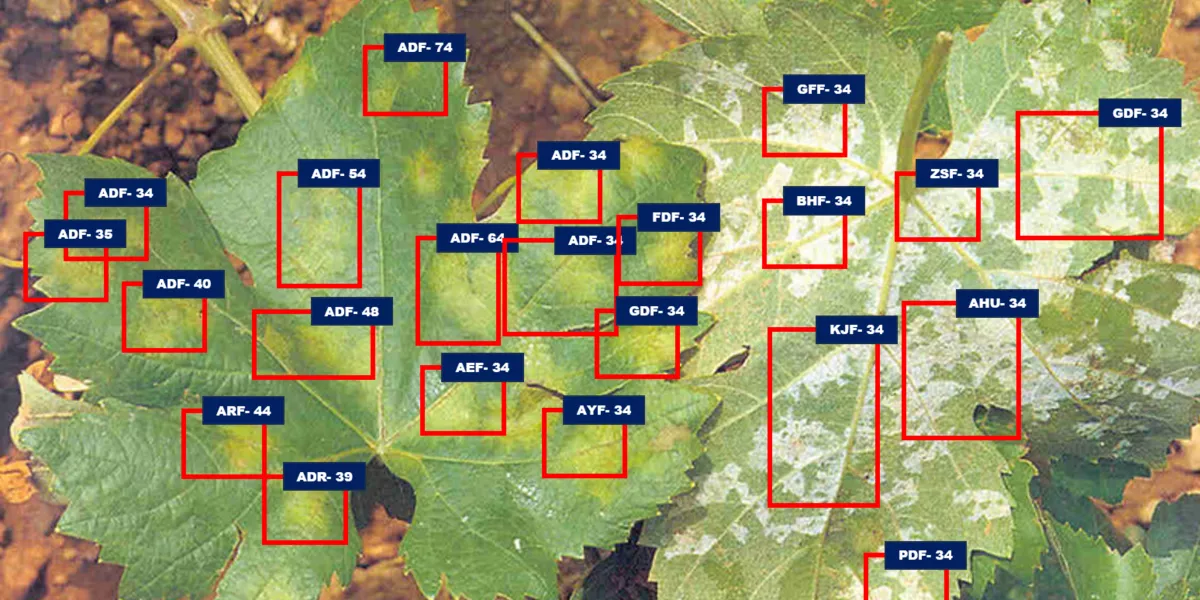DIVINE
Imaging diagnosis of vine diseases using neural networks and deep learning.

Scheda del progetto

Pro Logic Informatica srl

Università di Torino
Politecnico di Torino
End Users
Cantina Terre di Barolo
Az. Agr. Fratelli Rapalino
Az. Agr. Landolfo Sandro




DIVINE aims to automatically recognise vine diseases such as downy mildew and powdery mildew through image processing captured directly in the field during normal agricultural operations, using a system trained with artificial intelligence. The project will develop new hardware and software components within the framework of precision agriculture, which, once industrialised, will be able to transmit precise commands to actuators for micro-treatment with plant protection products, optimising and reducing the use of pesticides compared to the amounts used by traditional mechanical farming equipment.
Contacts:
Luca Giuseppe Antonio Monterzino
prologic@pro-logic.it
The project sets the ambitious goal of detecting vine diseases on leaves in advance, even before visible symptoms appear, using innovative tools. Sensors, hyperspectral cameras, specialised RGB and multispectral cameras will capture a vast number of images that will be used to train an artificial intelligence algorithm capable of surpassing the limits of the human eye and "seeing beyond the visible," identifying the disease in the early stages of its development on the vine.
Cutting-edge equipment will be used to explore the possibility of detecting the disease in its early stages of development, followed by the use of innovative technologies based on computer vision algorithms and neural networks, to automate and speed up the diagnosis process in the field.
The grower will be able to perform preventive diagnoses and regular monitoring of their crops to maximise production while reducing the risk of common diseases that affect vineyards in their early stages. This will also allow for more efficient dosing of the necessary plant protection products for treatment and prevention, resulting in positive environmental impacts.
